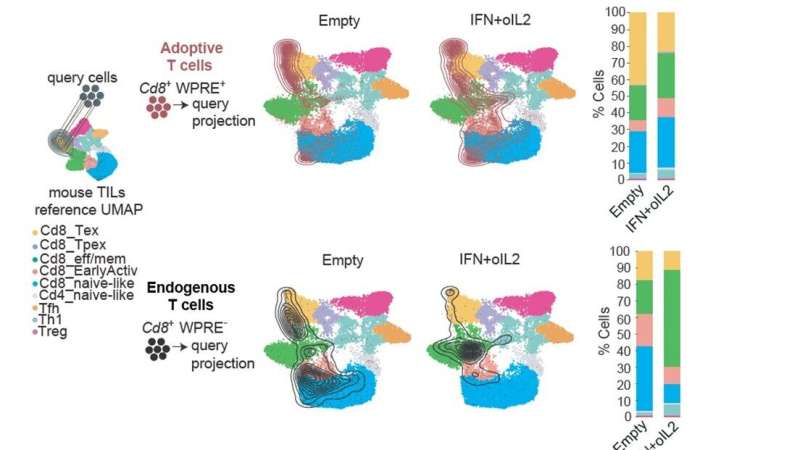The findings, published in Science Translational Medicine, highlight how gene therapy targeting immune-stimulating cytokines to the tumor microenvironment (TME) and enabling their private cross-talk with CAR-T cells not only restores CAR-T killer activity but also boosts a broader immune response that inhibits tumor growth and extends host survival in a preclinical glioblastoma models.
The study builds on the prior development by Naldini’s laboratory of a gene therapy strategy that exploits genetic engineering of hematopoietic progenitors to generate a progeny of monocyte/macrophages that selectively release their immune-stimulating payload upon infiltrating a tumor.
This strategy has been taken to its first-in-human clinical testing as a stand-alone treatment for glioblastoma by the biotech company Genenta Science, a spin-off from the San Raffaele Institute now listed on the NASDAQ

